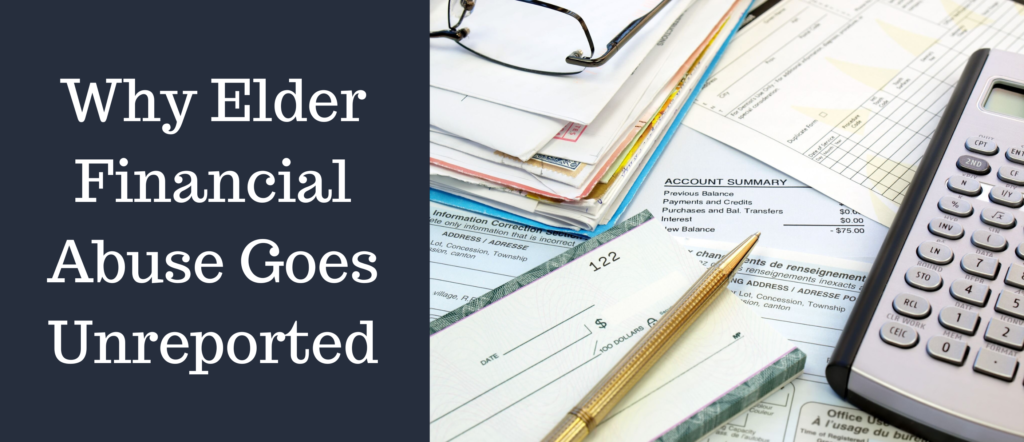July 25, 2023 by Deb Taylor, CEO
Elder financial abuse occurs when someone illegally or improperly appropriates money or belongings from an older person for their own personal use. While this financial exploitation takes many forms, including online scams, according to the National Adult Protective Services Association (NAPSA) the vast majority of reports involve perpetrators who are related to or in a trusting relationship with the victim.
NAPSA reports financial abuse of elders is costing older Americans and their families billions every year, though occurrences are thought to be grossly underestimated, with only 1 in 44 elder financial abuse cases even reported. This suggests we’re only seeing the tip of the iceberg when it comes to the actual devastation older adults and their families are experiencing the wake of abuse.
So why are the majority of cases going unreported?
- The abuser is a trusted family member or caregiver
Even if the victim becomes aware of the abuse, choosing to pursue a case against a loved one may be an impossible and heartbreaking decision for many older adults, especially if they are dependent on the abuser in some way. Many abusers have provided some form of assistance or caregiving to the older adult and can convincingly argue they are owed compensation, while the truth is they have abused the victim’s trust for personal financial gain, with little regard for the victim.
- The abuse takes place little by little over time
Financial abuse often occurs over months or years. It can be a slow, steady process of siphoning off small amounts at a time through check requests, bank withdrawals, wire transfers, recurring credit card payments, etc. The perpetrators are methodical and measured. They don’t ask for or take amounts significant enough to trigger suspicion in financial institutions or be questioned by family members or friends of the victim. Unfortunately, by the time the abuse is discovered, there may be little chance of reversing the financial damage.
- Shame and fear
As with many acts of abuse, the victim may feel a great deal of shame. If taken advantage of, older adults often worry that relatives will feel they can no longer take care of their own financial affairs. With financial exploitation there is often an illusion of consent on the part of the victim, but it’s propped up by manipulation, deception, or blatant misinformation. Despite this, the victim may fear they will be seen as mentally unfit for allowing themselves to be exploited and that reporting the abuse will lead to a loss of independence or autonomy.
- They don’t know how or where to report the abuse to
In the wake of a financial violation, finding resources can be an overwhelming task, further complicated by a lack of trust because of the abuse. But reporting financial abuse is imperative to gain knowledge of how abusers operate and to understand the full scope of the damage they cause in order to enact the measures necessary to break the cycle.
If you think you or a loved one is a victim of elder financial abuse, contact these trusted organizations to find resources and file a report:
justice.gov/elderjustice
National Elder Fraud Hotline: 1-833–372–8311
The Minnesota Adult Abuse Reporting Center
1-844-880-1574
elderjusticemn.org
651-440-9312

About the Author:
Deb Taylor is the CEO of Senior Community Services, a local nonprofit with a mission to empower people as they age, through serving compassionately, connecting communities, and supporting independence.




